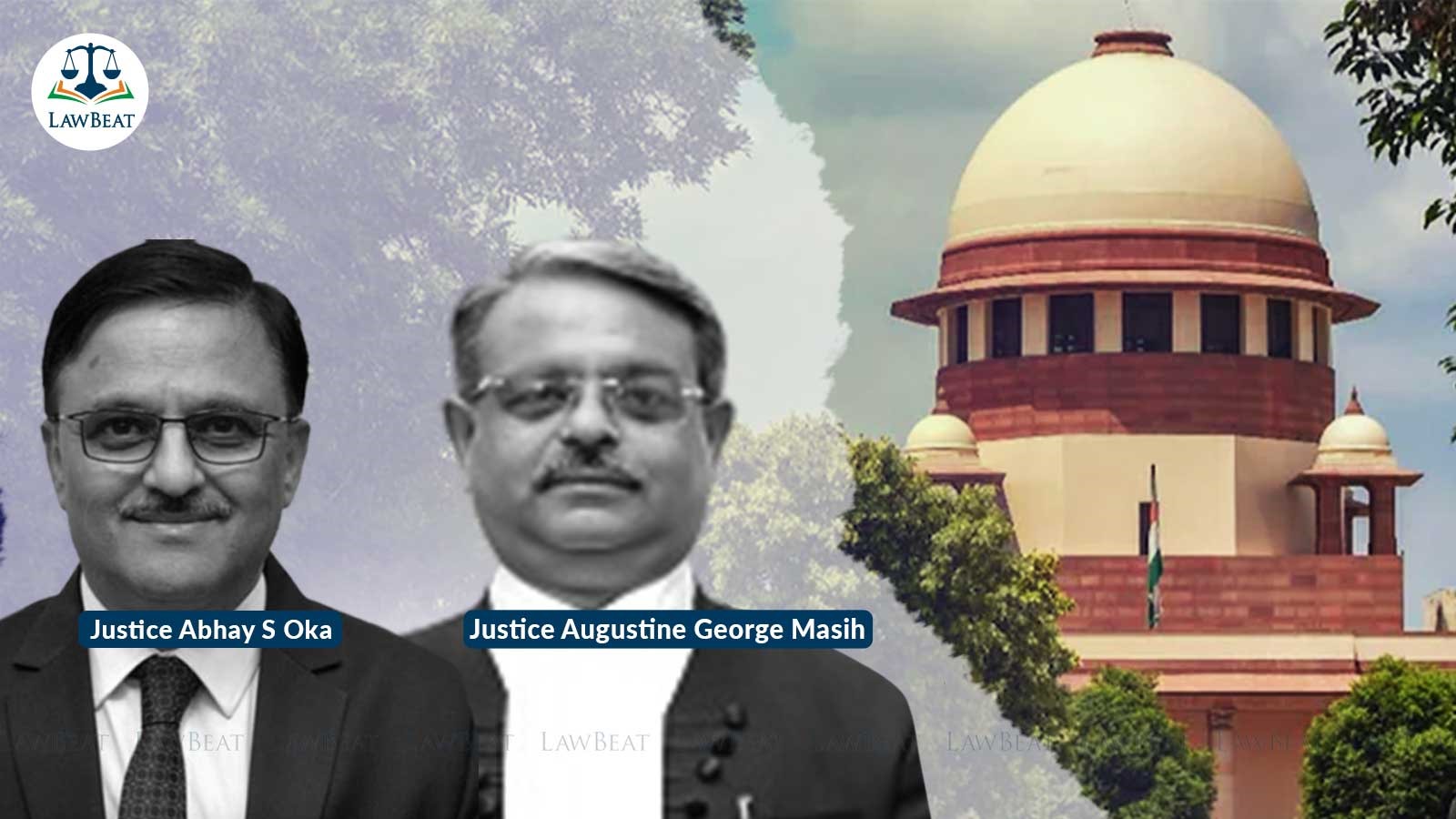Grant of authority to file complaint under Industrial Disputes Act not mere formality: Supreme Court

In the case, the complaint contained vague statements, so the Magistrate could not have issued a process for the offence punishable under Section 29 of the ID Act, SC bench said
The Supreme Court has said the grant of authority under Section 34(1) of the Industrial Disputes Act is a condition precedent and not a mere formality for filing a complaint under Section 34(2) of the law.
"While exercising power under Section 34(1) of the ID Act of granting authority, there is a complete non-application of mind. If such authority is issued without any application of mind, the very object of providing a safeguard in the form of Section 34(1) will be frustrated. The object of the provision is to prevent frivolous complaints from being filed. Grant of authority is not an empty formality," a bench of Justices Abhay S Oka and Augustine George Masih said.
The apex court set aside the Allahabad High Court's order and quashed the proceedings pending in a court of Kanpur Nagar in the complaint case against the appellants.
In the case, the bench said the magistrate should have considered the averments made in the complaint and the statements of the second respondent, complainant and his witness recorded by him before deciding whether a prima facie case of commission of an offence punishable under Section 29 of the ID Act is made out.
"He ought to have verified whether a lawful authority was granted to the second respondent to file a complaint alleging a violation of Section 29 of the ID Act. Setting criminal law in motion has serious consequences. It cannot be done casually by the Magistrate. Therefore, careful application of mind by the Magistrate was necessary before deciding to take cognizance. However, that was not done in the present case," the bench said.
Appellants Yugal Sikri and others were aggrieved with the High Court's order declining to quash the complaint and summons.
The appellants contended Section 29 of the ID Act is attracted when there is a breach of any settlement or award binding on the accused under the provisions of the ID Act. They submitted that there is no averment in the complaint about the breach of any particular settlement or award.
Under Section 34(1) of the ID Act, cognizance of any offence punishable under the ID Act can be taken based only on a complaint made by or under the authority of the appropriate Government. Their counsel submitted that no private person can be authorized under Section 34(1) of the ID Act to file a complaint.
The respondent, on the opposite, said an agreement was incorporated in the joint affidavit of the parties filed before the High Court on December 9, 2015 and what is alleged is the violation of the said agreement. He submitted that what is stated in the affidavit is an agreement and, therefore, what was alleged was the violation of the agreement incorporated in the joint affidavit of the parties.
In its judgment, the bench noted, "Section 29 is applicable when any person commits a breach of any term of any settlement or award binding on him under the ID Act. Therefore, in the complaint alleging the commission of an offence punishable under Section 29 of the ID Act, there must be a specific averment regarding the existence of a settlement or award binding on the accused under the ID Act and how the same has been breached. Settlement is defined under Section 2(p) of the ID Act."
The complaint in the case contained vague statements, the bench pointed out, adding, the Magistrate could not have issued a process for the offence punishable under Section 29 of the ID Act based on the statement made by the second respondent under Section 200 of the Cr PC.
"It is well-settled that the object of recording a statement of the complainant under Section 200 of the Cr PC is to bring the truth on record," the bench said.
Referring to the joint affidavit, the bench said it vaguely referred to a settlement arrived at between the parties. The memorandum of settlement of August 30, 1996 referred to in the joint affidavit is not even referred to and relied upon in the complaint, it added.
"On a plain reading of the complaint, there is no doubt that the second respondent has not been able to place on record, along with the complaint, any written settlement within the meaning of Section 2(p) of the ID Act between the parties which is binding under the ID Act," the bench said.
The court also opined it is not even the case made out in the complaint that there is any breach of any award by the appellants.
"Thus, on a plain reading of the complaint, the statement of the second respondent recorded under Section 200 of the Cr PC and the statement of a witness of the second respondent recorded under Section 202 of the Cr PC, we find that the second respondent made out no case of breach of any settlement," the bench said.
Moreover, the order purportedly passed in the exercise of powers under Section 34(1) of the ID Act does not even refer to the commission of an offence punishable under Section 29 of the ID Act, the court added.
The bench said it was not going into the wider question of whether an authority could have been conferred on the second respondent to file a complaint as it was unnecessary.
